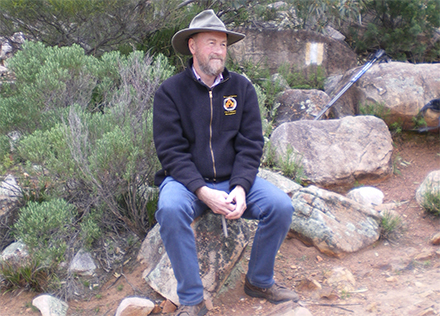The Bushfire Royal Commission’s recommendations released Friday have been labelled as everything from underwhelming to common sense and overdue. In its report, the Commission made 80 recommendations to improve Australia’s national natural disaster arrangements. Source: Timberbiz
Among the recommendations, the Commission said Australia needed a national approach to natural disasters and the Federal Government must play a greater role than it currently does.
But the Institute of Foresters (IFA), in one of the more critical responses, said report lacked the vision needed to address Australia’s bushfire woes.
The IFA/AFG described the report as totally underwhelming.
It said the report failed to address the current imbalance between fire prevention and fire response.
Chair of the IFA/AFG Forest Fire Management Committee Gary Morgan AM AFSM (Australian Fire Service Medal) warned that all governments needed to place a greater emphasis on prevention if continual future repeats of the Black Summer disaster were to be avoided.
“Australia needs a better balance of prevention against response and the Royal Commission does not achieve this vision,” Mr Morgan said.
“We are calling for all levels of government to place a greater focus on land management and investment in bushfire prevention activities and research.”
The Australian Forest Products Association welcomed the report’s recognition of forest industry crews’ crucial role in firefighting.
The AFPA also welcomed the Royal Commission’s strong findings regarding the vital part fuel reduction must play and the need for more consistency across all land tenures.
“These findings are in line with our advocacy over many years pointing out that we must use all fuel reduction means at our disposal – cool burns and mechanical removal,” AFPA CEO Ross Hampton said.
“We must not simply focus all attention on multi use forests. National Parks need to manage fuel loads, and farmers need to be given more flexibility to make their properties safe.”
In his evidence to the Royal Commission earlier this year, Mr Hampton told the Commission that deploying mechanical fuel reduction to create buffers around towns and critical infrastructure would make it easier to suppress catastrophic fires.
“The Royal Commission will be a wasted opportunity if we don’t, as a nation, become far more proactive in our approach to bushfire mitigation,” Mr Hampton said.
“Mechanical fuel reduction and thinning of the bush close to towns must play a greater role in fuel reduction. Otherwise we will go into another bushfire season and risk repeating the mistakes of the past.”
The Independent Member for Indi Dr Helen Haines said that Commission had made it clear that Australia is alarmingly unprepared for our future bushfire risk.
“The response from the Government must be swift, decisive and uncompromising,” she said.
“There have been 240 inquiries into natural disasters before in Australia. This should be the last. Now is the time to act.
“For these people, and all of us who lived through the bushfires of last summer, many of the recommendations of today’s Royal Commission will come as little surprise.”
Dr Haines noted that the Commission recommended a nationally consistent approach to communicating bushfire risk.
“For the many people in our region who faced fires on both sides of the Murray, meaning two apps, two sets of instructions, two sources of information, this is a common-sense and overdue idea,” Dr Haines said.
“While we’re pleased the Royal Commission recognised the importance of bushfire hazard reduction measures including prescribed burning, it’s essential a much greater focus is given to this area.
The IFA/AFG’s Mr Morgan said that reduced wildfire intensity was a good way to help biodiversity cope with Climate Change impacts.
“However, to achieve this balance requires well-trained and locally knowledgeable land managers such as forest scientists and professional forest managers who possess the right education, tools, and know-how and interact with the land all year round,” he said.
“Indigenous Australians have held this knowledge for at least 60,000 years and it’s encouraging the report recommends the need to work with them to reintroduce large scale landscape fire management regimes.”
Mr Morgan said additional aircraft capability, as recommended by the Royal Commission, did not offer the solution to Australia’s fire emergency problem.
“We fail to understand why the Royal Commission recommended a sovereign aerial firefighting capability. Globally we see greater use of very large aircraft in fire suppression. They look wonderful on the television but are not always cost effective,” he said.
“Aircraft are important in fire suppression as well as for intelligence gathering and transport, however more larger fire suppression aircraft is not the answer. To be effective, aircraft need trained forest firefighters on the ground. Ground based resources need more access via roads and tracks, particularly in remote areas.
“Additional funding should be directed towards good land management and better fire detection, rather than simply increasing emergency response. Further consideration and research into the cost effectiveness of firebombing aircraft, especially the LATs and VLATs, is required.”






